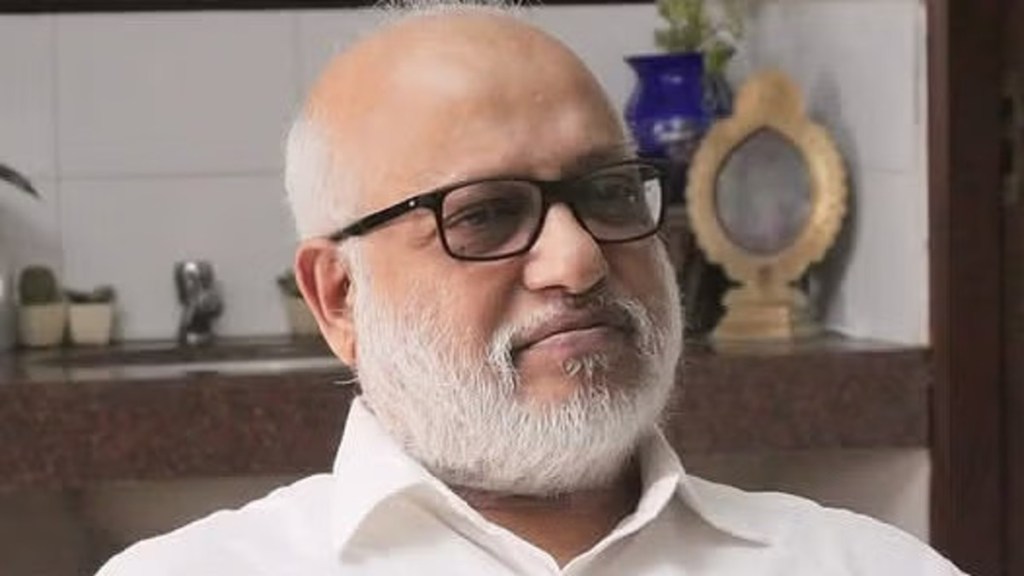It is not unusual for the Left to use “the tools of capitalism as a temporary retreat,” says Mariam Alexander Baby, the newly chosen general secretary of the Communist Party of India (Marxist). He was drawing parallels between Kerala’s Left Democratic Front (LDF) government embracing a set of “right-wing policies” and the New Economic Policy adopted by “Bolshevik Russia” in 1921. “It (the LDF government’s policies) is not rightward deviation… Kerala is not a sovereign state. It is a resource-scarce provincial government working under an overarching capitalist framework,” Baby, who turned 71 just a day before assuming the top post of his party, tells FE.
Even the EMS Namboodiripad-led government (1957-1959), the first one of unified Kerala, did not have the delusion of presiding over a socialist or communist dispensation, he recalls. It roped in private investors, and a marked example was that of Gwalior Rayons (later renamed as Grasim) unit set up by G D Birla.
Baby, who is the second person from the CPI(M)’s still-strong Kerala unit after stalwart communist theorist EMS to head the party, makes no bones about the seemingly precipitous decline of his party over the last one and a half decades. He admits that “out-of-the-box solutions” might be needed for its revival, especially when it comes to gaining a foothold in the Hindi belt, which has remained largely out of bounds for the party.
However, he avers the immediate goal is “to strengthen the platform of secular and Left democratic forces” to dislodge the BJP-led government at the Centre, which, he stresses, is “pursuing an agenda with strong neo-fascist traits.” The challenge is to “detoxify the cells” of the country’s polity of the communal Hindutva elements, he says.
The articulate, soft-spoken leader plunged into turbulent student politics while in his teens, and was imprisoned during the Emergency period. In over half a century, he has held both oganisational and parliamentary roles, including a noted stint as Rajya Sabha member (1986-1998). His term as education minister of Kerala (2006-2011) was marked for bold attempts to complete “the unfinished reforms agenda” of “liberating the sector from vested and commercial interests.” The period, however, saw stubborn resistance from powerful social groups, including elements of the Christian Church that held sway in the sector.
Baby’s initial ascendancy in the party’s rigid organisational hierarchy was swift. He was inducted into the powerful central committee as early as in 1999, but had to wait till 2012 to be part of the Polit Bureau. When the CPI(M) Kerala unit was riven with factionalism, Baby didn’t appear taking strong sides. He can deal with journalistic nitpicking with relative ease and poise.
An avid reader of not just political thought and philosophy, but European and Latin American fiction from his student years, Baby has also been the force behind many cultural projects in his home state. Example include Manaveeyam Veedhi, a stretch of road in Thiruvananthapuram, which has been developed as a cultural corner, and the Swaralaya cultural/musical outfit. As a self-avowed “footfall fanatic,” he notes with interest that both Diego Armando Maradona and Fidel Castro passed away on the same day, November 25th.
This writer remembers a young and spirited Baby making a fiery speech to an attendant group of male and female students at a Kerala college campus four decades ago. He was then the national president of the Students Federation of India.
Asked why the Left is no longer able to capture the imagination of the rising generation and the tech-educated, aspiring sections of the country’s youth, Baby says the party is acutely aware of the disconnect. “Our central leadership is formulating a radical action plan (to attract the youth).. it will be a state-wise approach given the diverse nature of the country.”
Why is his party or India’s labour unions in general largely confine their activities to collective bargaining for the organised sector workers, while the bulk of the country’s workforce – or over 450 million – might have more legitimate grouses about their work conditions and compensation? Baby says there is a conscious focus on expanding the reach of the party and its assorted class organisations to “scheme workers,” and cites the struggles that led to new laws aimed at welfare of gig workers in Karnataka and Rajasthan.
Why do the electoral reversals in West Bengal, where a CPI(M)-led front ran the government for an uninterrupted 34 long years and for a record five terms, look irreversible? According to the general secretary, well-thought-out plans are afoot to re-establish the connect with the people in the state. “We don’t hesitate to self-critically admit our failures. People’s trust will be regained.” He referred to how the CPI(M) withstood the “electoral rigging” by the “rainbow coalition” headed by the Congress in 1972, and “repression” by the Siddhartha Shankar Ray government. “Despite all the horrors and the Emergency, we won a thumping mandate in the 1977 polls.”
“Global capitalism is hurtling from one crisis to another and the Trump tariffs are the latest manifestation.” Why isn’t there a mainstreaming of the Left globally if that were the case? “Historically, the Far Right have taken advantage of the distress caused by capitalism.. On multiple occasions, they have adroitly prevented mass moblisation towards the Left. This has partly been been due to the weakness of the Left. Even Hitler’s party was called the National Socialist German Workers’ Party,” Baby says. “But there are successes too, like the installation of the centrist government in France in late 2024, thwarting the Far Right.”
To get back to basics, with its much reduced electoral heft, the CPI(M)’s quest for relevance and visibility hinges a lot on retaining power in Kerala for a third term. State assembly polls are due in a little over a year. The party’s key decision-making bodies have seen more-than-usual rejig in the latest Party Congress held in Madurai, with a section of the old guard retiring. Collective decision is the party’s style, yet Baby has his task cut out.

